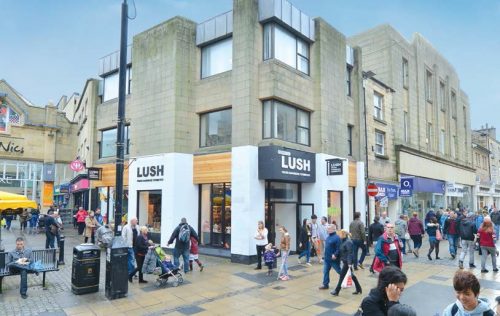Shop closures outweighed openings across NW in 2016

More shops closed than opened across the North West in 2016.
PwC research compiled by the Local Data Company is an analysis of 66,807 outlets operated by multiple retailers in 500 town centres across the UK which found that in 2016, 333 shops opened and 410 closed in the North West.
This equates to a net decrease of 77 shops – a trend that seems to have continued from 2015, albeit volumes were higher, where 378 outlets opened and 441 closed with a net reduction of 63 shops.
The six town centres in the North West area which saw the most positive net change in 2016, were Bolton, Burnley, Preston, Carlisle, Crewe and Macclesfield all experiencing more openings than closures (Table 1).
Liverpool, Manchester, Lancaster, Blackpool, Barrow and Kendall had the highest net reduction in the North West, followed by Ashton under Lyne, Wilmslow, Wigan, Hale and Salford amongst others (Table 2).
Charity shops, beauty products and jewellers are amongst those growing at the fastest rate in the North West during 2016. The data also reveals that across multiple retailers in the 29 town centres analysed across the North West fashion shops, banks and other financial institutions and department stores have been amongst the hardest hit in 2016.
Table 1: North West towns with more openings than closures in 2016.
| Town centre | Businesses Jan 2016 | Businesses Dec 2016 | Net change | Openings | Closures |
| Bolton | 194 | 199 | 5 | 21 | 16 |
| Burnley | 136 | 139 | 3 | 10 | 7 |
| Preston | 265 | 268 | 3 | 17 | 5 |
| Carlisle | 202 | 204 | 2 | 18 | 16 |
| Crewe | 149 | 151 | 2 | 7 | 5 |
| Macclesfield | 142 | 144 | 2 | 10 | 8 |
Table 2: North West towns with the highest net reduction in 2016.
| Town centre | Businesses Jan 2016 | Businesses Dec 2016 | Net change | Openings | Closures |
| Liverpool | 624 | 612 | -12 | 31 | 43 |
| Manchester | 804 | 792 | -12 | 66 | 78 |
| Lancaster | 168 | 157 | -11 | 11 | 22 |
| Blackpool | 223 | 215 | -8 | 11 | 19 |
| Barrow | 132 | 125 | -7 | 7 | 14 |
| Kendal | 148 | 141 | -7 | 3 | 10 |
Mike Jervis, retail specialist at PwC, said: “The research clearly highlights the changing face of town centres – leisure and experience destinations continue to replace traditional high street stalwarts. The insatiable appetite for fast food and coffee shops fills the void left by banks, mobile phone and clothing shops.
“Fashion is migrating to online at a faster rate than ever, leaving closures in its wake. Last year was relatively benign for restructuring and insolvency in all sub-sectors of retail, so the net closures points to structural changes in customer behaviour more so than a consumer slowdown.”
Commenting more broadly on the retail sector, Madeleine Thomson, retail and consumer leader at PwC, continued: “2017 will be a crucial year for retailers. The combination of price inflation on goods and groceries will mean that brand loyalty will play a more significant role than ever.
“However, with prices on the up and less disposable income available to the average UK consumer as a result, retailers will need to be versatile and savvy to increase footfall to their stores.
“Our Total Retail research shows that almost half (48%) of UK shoppers buy online because they find it more convenient than visiting a shop. However, despite the fall in new store opening, consumers continue to place value on the in-store experience, with the number one in-store attribute being shop staff with a deep knowledge of their product range.
“As we look ahead, the ‘Total Retail’ experience looks to be defined as simple and streamlined; one that maintains a human touch, blending the best of technological advances with helpful and expert staff both in-store and online.”








